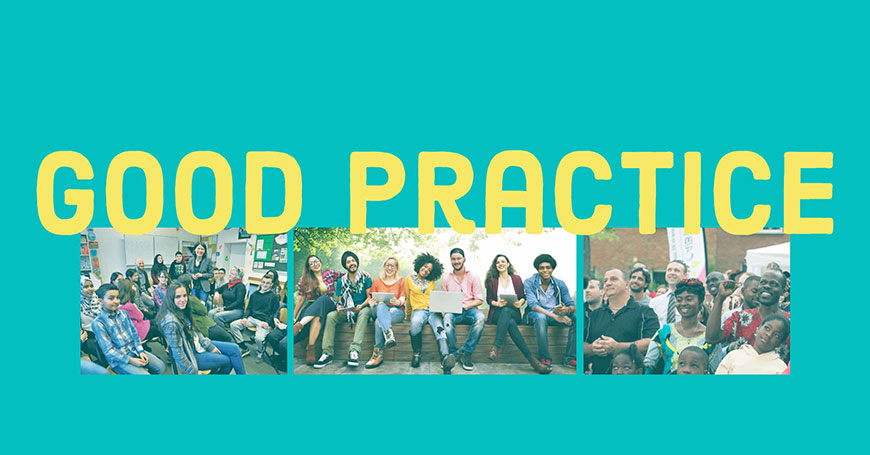Intercultural cities: good practice examples

The first step is the adoption (and implementation) of strategies that facilitate positive intercultural encounters and exchanges, and promote equal and active participation of residents and communities in the development of the city, thus responding to the needs of a diverse population. The Intercultural integration policy model is based on extensive research evidence, on a range of international legal instruments, and on the collective input of the cities member of the Intercultural Cities programme that share their good practice examples on how to better manage diversity, address possible conflicts, and benefit from the diversity advantage.
This section offers examples of intercultural approaches that facilitate the development and implementation of intercultural strategies.
Campus Rütli
Purpose: A segregated and failing school is transformed into a centre of educational excellence Stimulus/Rationale: The Rütli school had become notorious all over Germany in 2006, when the...
EMPO Multicultural Resource Center
Purpose: The EMPO Multicultural Resource Center acts as a resource centre for migrants through providing information and counselling that enable participants to develop their own resources to...
Barcelona Centre for Linguistic Normalisation
Purpose: The Consortium for Linguistic Normalisation (CPNL) is a public body created from the common will of the Regional Government and numerous local, county and provincial councils with the aim...
Adaptation of Internally Displaced
Purpose: Promote adaptation and participation in the city life of newcomers (IDPs) Process: As a part of its Intercultural Strategy, the city authorities pay particular attention to facilitating...
Portimão Migrant Integration Plan
Purpose: Enhance the integration of migrants through a set of articulated actions implemented by a consortium of relevant local partners. Stimulus/Rationale: One of the strengths of the plan is the...
241FE- 241 Female Entrepreneurship
Purpose: Women are the primary victims of the intertwined causes of conflicts, underdevelopment and migration. To address these issues, in a sustainable and humanitarian way, migrants should be...
Close to Culture: Art, music and theatre prevent social exclusion and promote the democratisation of culture
Purpose: Apropa Cultura (Close to Culture) is a network of cultural facilities, such as theatres, concert halls, festivals and museums, whose main purpose is to encourage inclusiveness promoting...
Schilleria Girl´s Café - PolitTalk (Schilleria Mädchentreff)
Purpose: Promotion of the political participation of young women Stimulus/Rationale: Process: The Schilleria Girl´s Café is addressed at girls and young women, most of whom have a migrant...
Women, Health and Violence
Purpose: This programme seeks to empower women from all origins and socio-cultural backgrounds in Bilbao through the promotion of health and the prevention of gender-based violence. It aims to...
Improving participation in local elections 2018
Purpose: to improve immigrants' knowledge about their voting rights and by this improve immigrants participation in elections; to produce accessible information about the elections in clear and...


